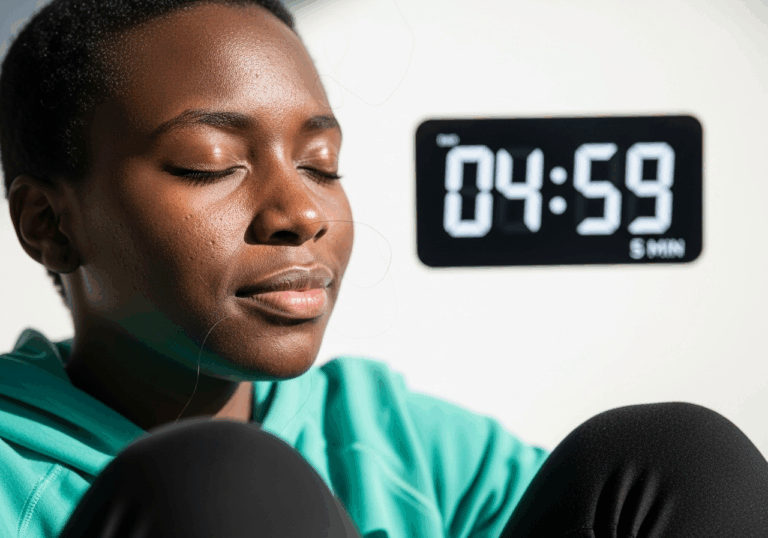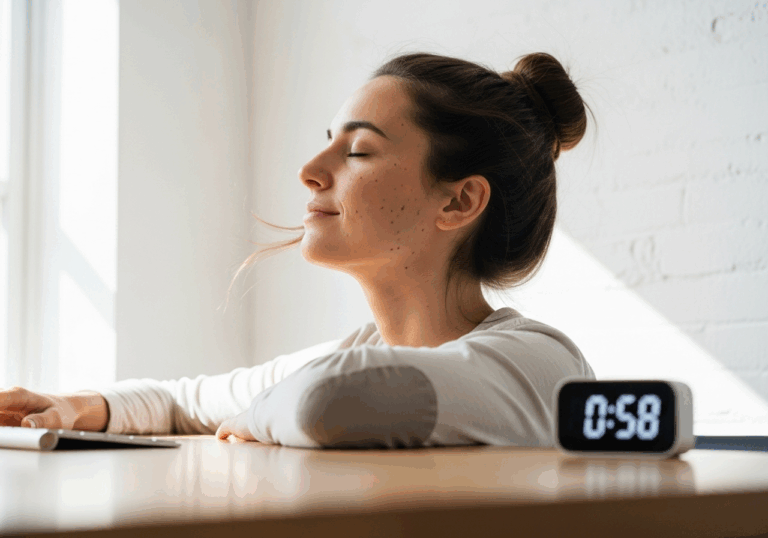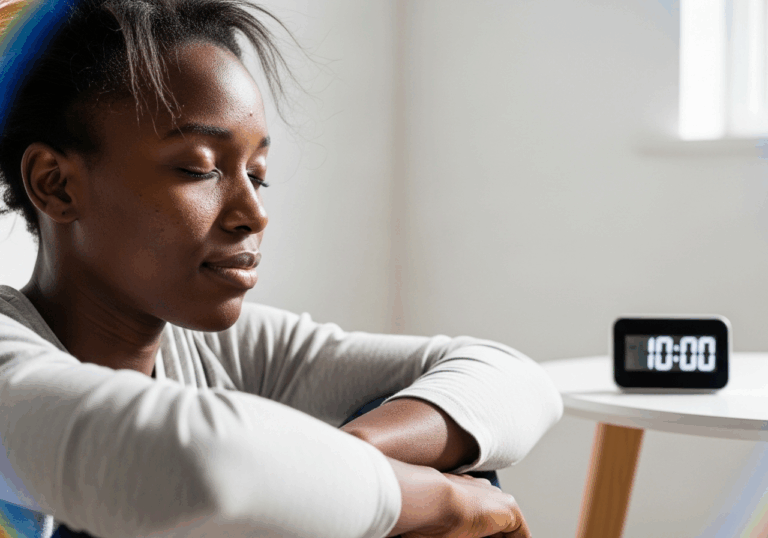Science-Backed Tips
Breathe Deeply for Post-Surgery Recovery
10 deep breaths every 3 hours can reduce anxiety by 3.4 points.
📊 Did you know?
💡 Why It Matters
1️⃣
Improved psychological outcomes can lead to faster recovery times, enhancing overall patient wellbeing.
2️⃣
Reducing anxiety and depression post-surgery can decrease the need for pharmacological interventions.
3️⃣
Enhanced sleep quality contributes to better healing and rehabilitation outcomes.
✅ Try These Micro-Tips
🎯
Perform 10 deep breaths every 3 hours for 4 days post-surgery.
🎯
Incorporate deep breathing exercises into daily routines to manage stress.
🎯
Practice deep breathing for 5 minutes before bedtime to improve sleep quality.
🎯
Engage in guided breathing sessions using mobile apps or online resources.
📚 The study
The study involved 80 patients who were randomly assigned to practice deep breathing interventions every three hours for four days following their surgery.
The results were remarkable: anxiety scores decreased significantly from 10.35 to 6.97, while depression scores dropped from 10.45 to 7.92.
Additionally, the Pittsburgh Sleep Quality Index (PSQI) improved by approximately 6.9 points, indicating a notable enhancement in sleep quality.
These findings highlight the importance of rapid post-operative breathing techniques in improving mood and overall sleep quality.
By reducing anxiety and depression levels, patients can experience faster recovery times, ultimately leading to enhanced well-being.
This is particularly significant as it suggests that effective breathing exercises can decrease the reliance on pharmacological interventions, paving the way for a more holistic approach to post-surgery recovery.
Improved sleep quality not only contributes to better healing but also supports rehabilitation outcomes, making deep breathing a simple yet powerful tool for patients recovering from CABG surgery.
❓ Frequently Asked Questions ❓
Learn more
What is the impact of deep breathing exercises after CABG surgery?
Deep breathing exercises performed after CABG surgery can significantly reduce anxiety and depression scores. Specifically, patients showed a decrease in anxiety by approximately 3.4 points and depression by about 2.8 points.
How often should patients practice deep breathing after CABG surgery?
Patients are advised to perform 10 deep breaths every 3 hours for 4 days post-surgery. This routine can enhance psychological recovery and improve overall well-being.
What are the psychological benefits of deep breathing for CABG patients?
Deep breathing exercises can lead to improved mood and reduced anxiety and depression levels. Enhanced psychological outcomes can contribute to faster recovery times.
How does deep breathing affect sleep quality after surgery?
Engaging in deep breathing exercises can improve sleep quality, as indicated by a PSQI score drop of approximately 6.9 points. Better sleep quality is essential for healing and rehabilitation.
Can deep breathing reduce the need for medication post-surgery?
Yes, reducing anxiety and depression through deep breathing can decrease the reliance on pharmacological interventions. This can lead to a more natural recovery process.
How long should patients practice deep breathing exercises?
Patients should practice deep breathing exercises for 10 deep breaths every 3 hours for a duration of 4 days post-surgery. This structured approach is effective in promoting psychological recovery.
What is the significance of the study on deep breathing after CABG surgery?
The study highlights that rapid post-operative breathing can significantly improve mood and sleep quality. These improvements are crucial for enhancing overall patient well-being.
How can patients incorporate deep breathing into their daily routines?
Patients can incorporate deep breathing exercises into their daily routines by setting reminders to practice every few hours. Additionally, they can engage in guided breathing sessions using mobile apps or online resources.
What is the recommended duration for deep breathing before bedtime?
Practicing deep breathing for 5 minutes before bedtime is recommended to improve sleep quality. This simple technique can help relax the mind and body, promoting better rest.
What were the initial anxiety and depression scores for patients before deep breathing exercises?
Before implementing deep breathing exercises, the average anxiety score was 10.35, and the average depression score was 10.45. These scores significantly decreased after the intervention.





